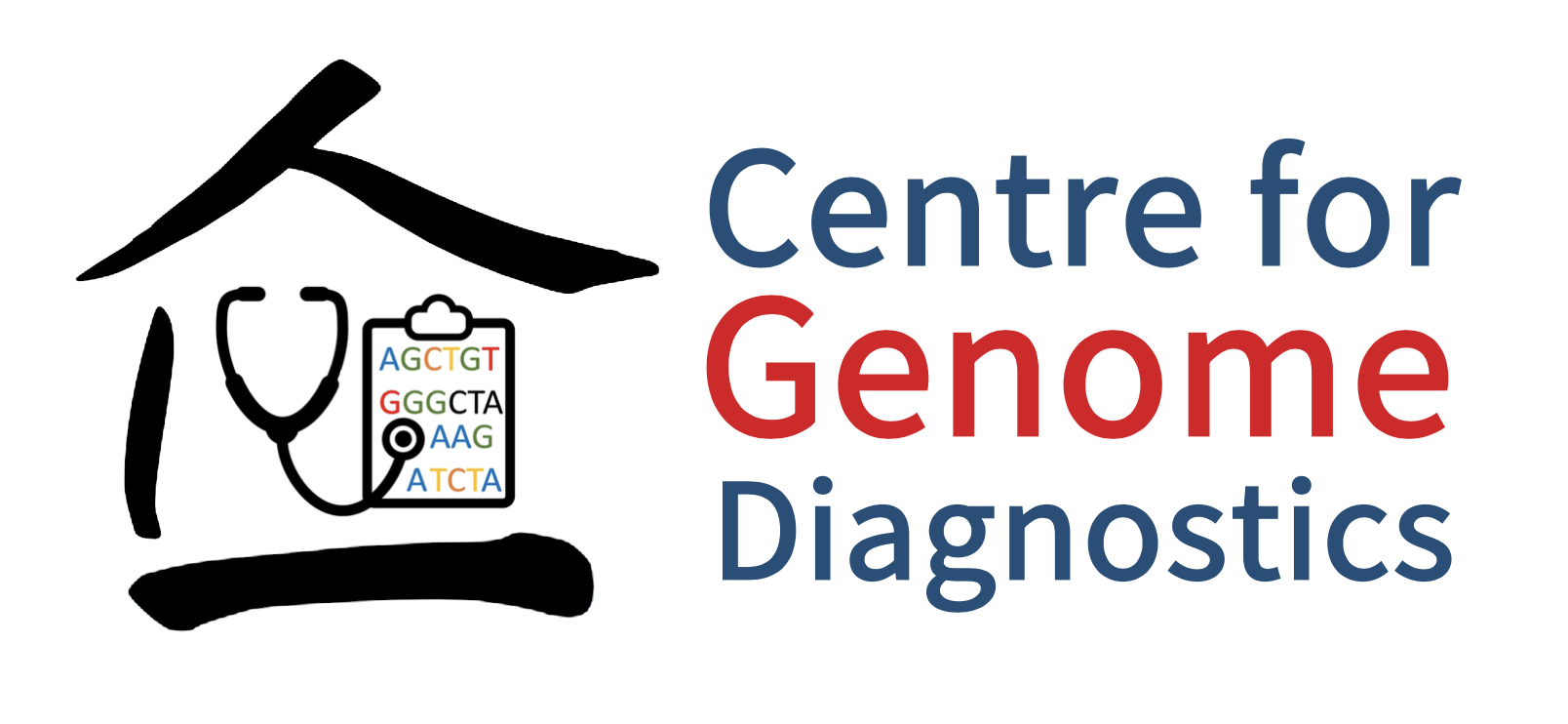TECHNOLOGY
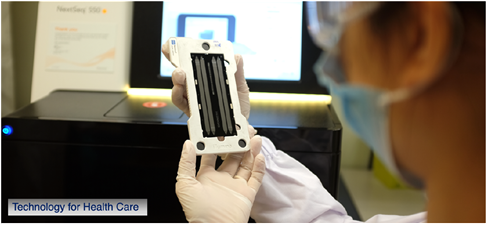
Sanger Sequencing
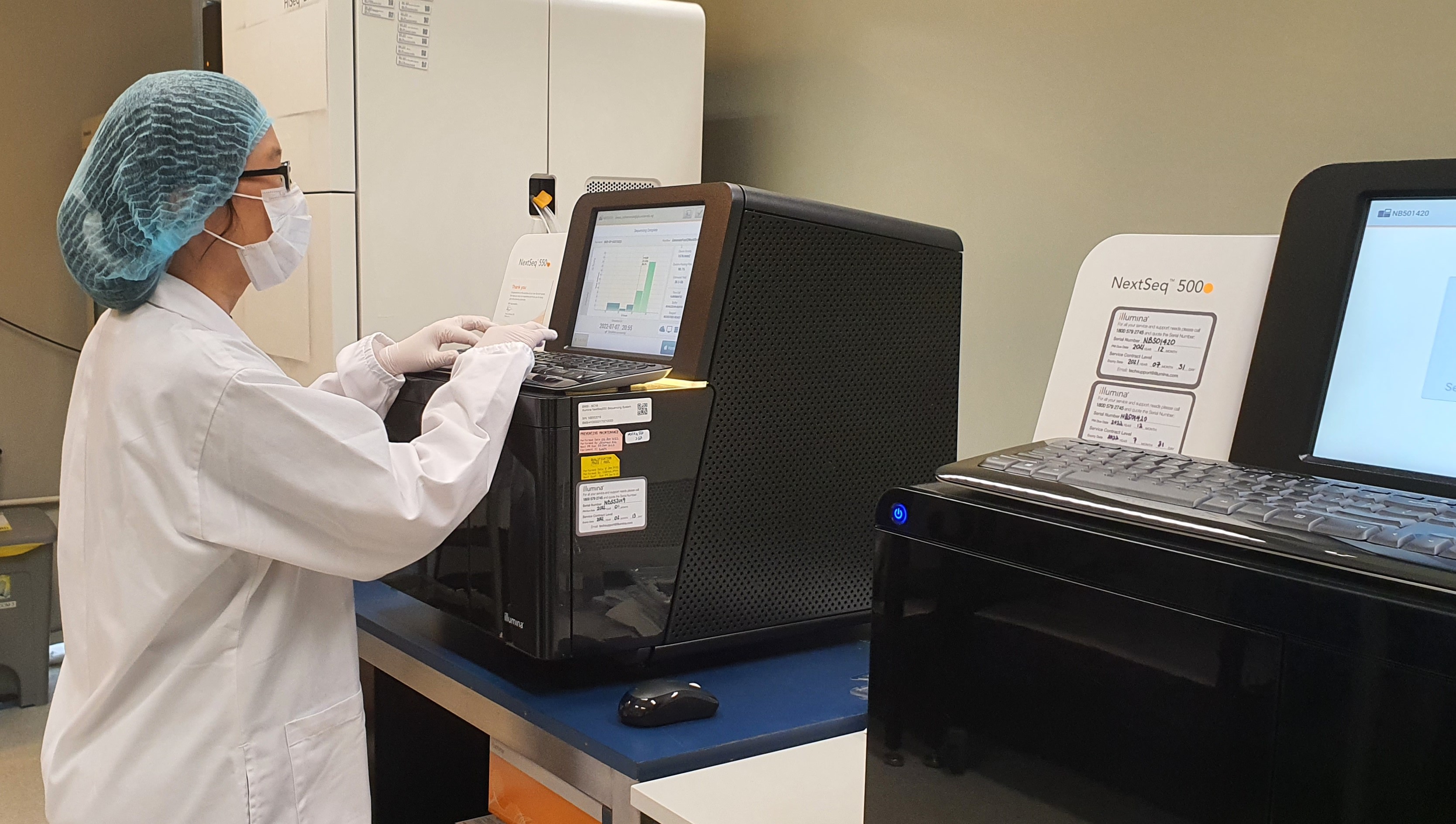
Next Generation Sequencing (NGS) technology uses parallel sequencing to provide high-throughput and accurate sequencing results in a cost and time effective manner. POLARIS@GIS Clinical Laboratory:
- Utilizes Illumina platforms such as MiSeq and NextSeq 500/550
- Has established Somatic and Germline NGS clinical workflows and proprietary analysis pipelines
- Can help customize and validate NGS workflows and analysis pipelines based on specific requirements
Sanger Sequencing is a qualitative test based on the selective incorporation of chain-terminating dideoxynucleotides by DNA polymerase during in vitro DNA replication. POLARIS:
- Uses Sanger Sequencing for confirmation of mutation status of key actionable genes if required, for any of POLARIS NGS, or real-time PCR based tests.
- Generates a variant report to indicate the variant (SNP, Indel) that has been confirmed, or
- A FASTA file to indicate the sequence of the targeted DNA region (for sequence alignment analysis, e.g., for the confirmation of gene fusion).
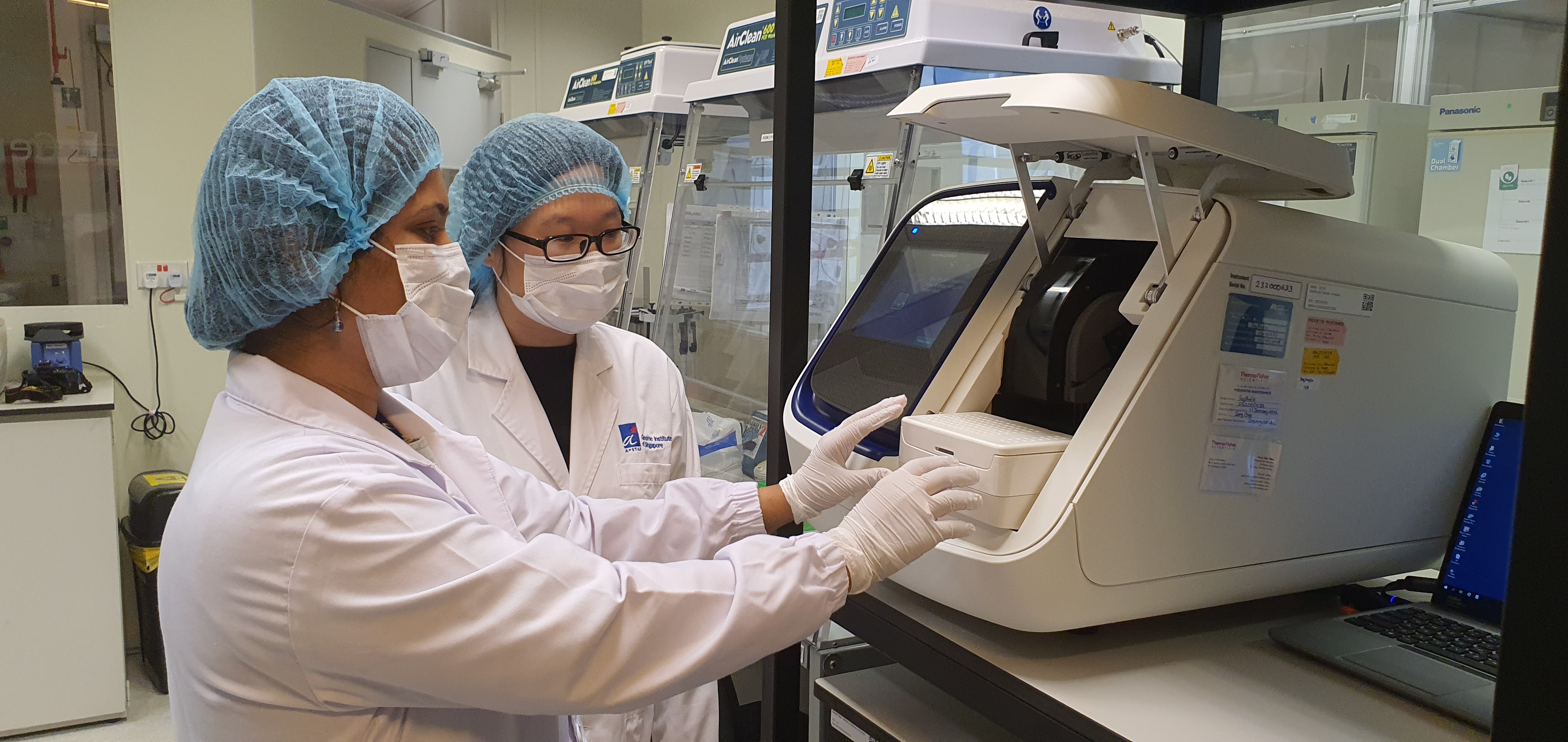
ddPCR
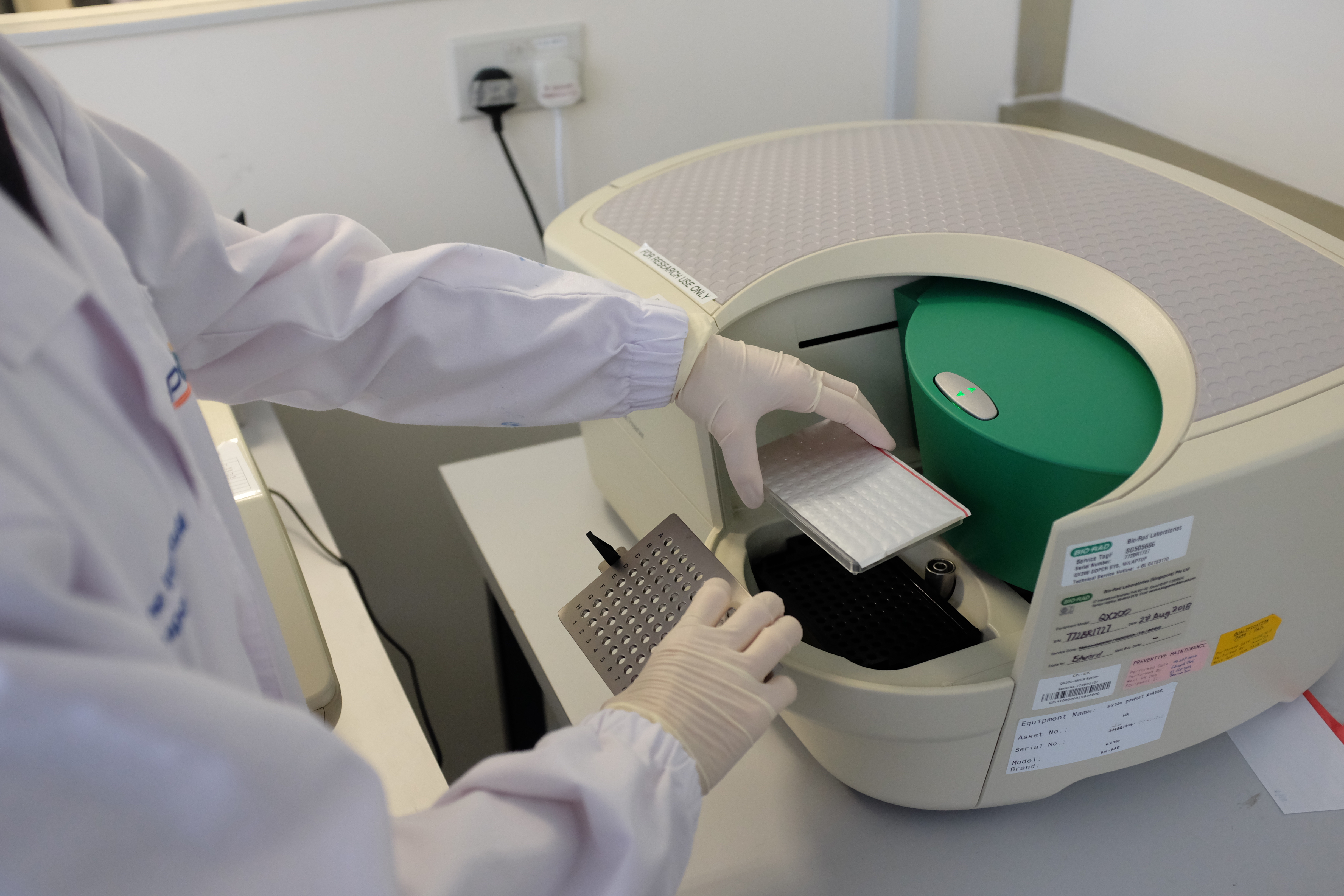
Droplet Digital PCR (ddPCR) is a highly sensitive technology that partitions DNA into at least 10,000 discrete oil droplets, which are subsequently analyzed for mutant- and/or wild type-positive status. POLARIS:
- Has established the EGFR Mutation Analysis Test for Lung Cancer based on this technology for formalin-fixed paraffin-embedded (FFPE)-derived genomic DNA (gDNA) or plasma-derived cell-free DNA (cfDNA)Indicates the mutation status of key actionable EGFR mutations in non-small cell lung carcinoma (NSCLC) patients that are useful in predicting patient response to EGFR Tyrosine Kinase Inhibitor (TKI) treatment
- uses this Test for primary diagnosis as well as recurrence or resistance monitoring
qPCR
Real-Time PCR (RT PCR), or quantitative PCR (qPCR), is a DNA sequence detection and quantitation method extensively used for DNA copy numbers determination, gene expression, mutation detection, SNP genotyping, detection of infectious agents and many other applications in the fields of genomics research, drug R&D, and biologics testings. POLARIS
- Has expertise in qPCR assay development, including assay design, validation, transfer, manufacture and testing.
- Had developed and validated RT PCR assays for detection of RSPO gene fusions, SARS CoV-19 and Group B Streptococcus etc.
- Are engaged in development of qPCR assays for detection of miRNA biomarkers.
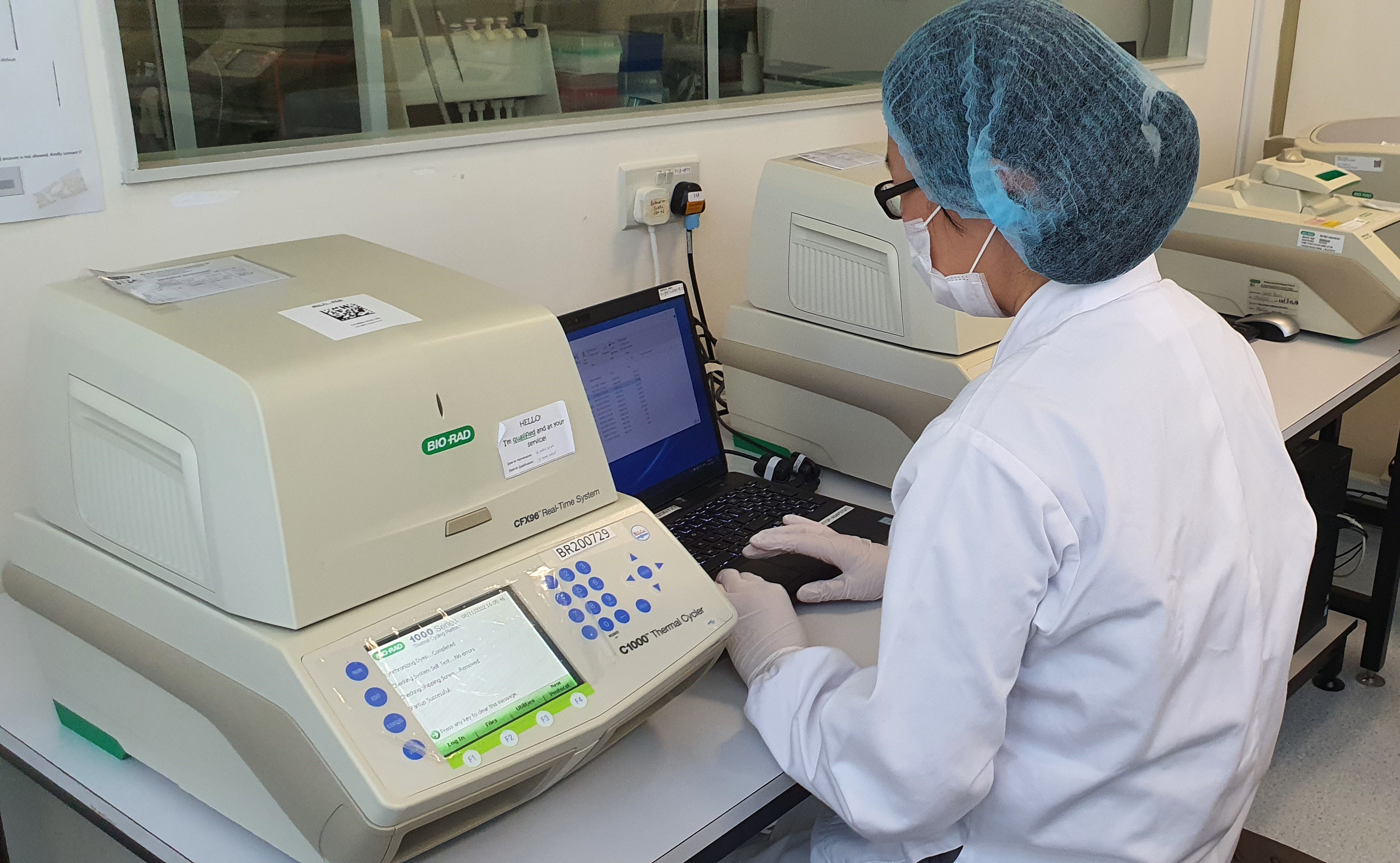
Bioinformatics
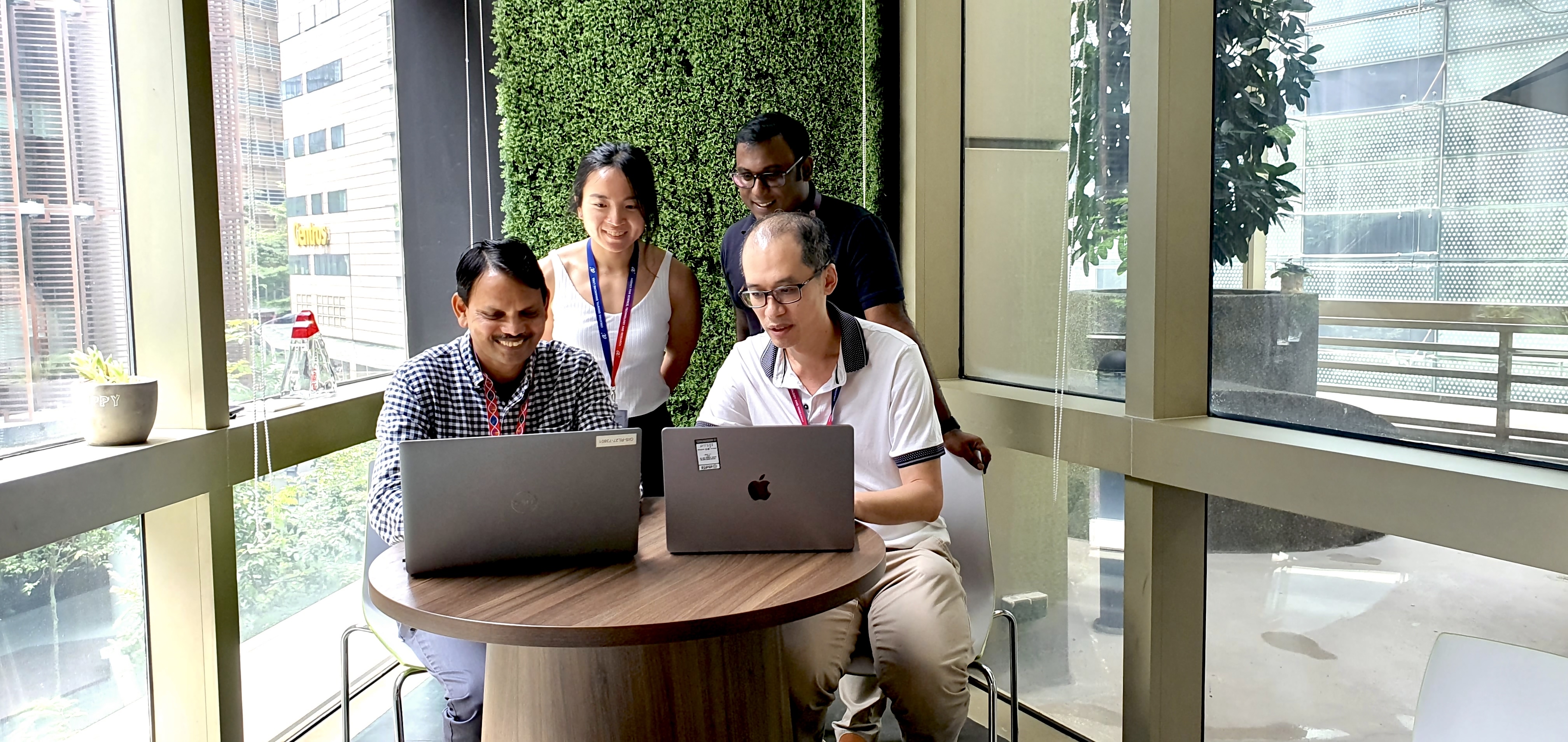
Bioinformatics is an interdisciplinary field that develops methods and software tools for understanding biological data, mainly when the data sets are large and complex. With bioinformatics as one of the strong pillars of CGD, we make a meaningful understanding of experimental data and help accelerate research and development projects. In CGD, the bioinformatics team serves the following functions:
- Design and develop analytical pipelines for lab-developed clinical NGS tests
- Validate software, tools, and pipelines for clinical utility
- Provide systematic or ad-hoc data analysis for clients
- Work with wet-lab, clinical curation team,
- and LIMS providing day-to-day support and task-oriented functionalities as well
Laboratory Information Management System
Laboratory Information Management System (LIMS) is a software-based laboratory and information management system with a flexible architecture that allows customization, tracking sample movement and processing, storing and attaching result files, and performing smart data exchange between different interfaces. LIMS is used in CGD to provide the following functions :
- Processing and tracking of sample from the point of sample submission/ receipt, through the designated workflow, to delivery of data for analysis
- Equipment integration
- Quality Control
- Time-saving automation for the complex and mundane tasks
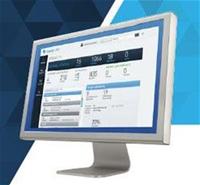
A*STAR celebrates International Women's Day

From groundbreaking discoveries to cutting-edge research, our researchers are empowering the next generation of female science, technology, engineering and mathematics (STEM) leaders.
Get inspired by our #WomeninSTEM
